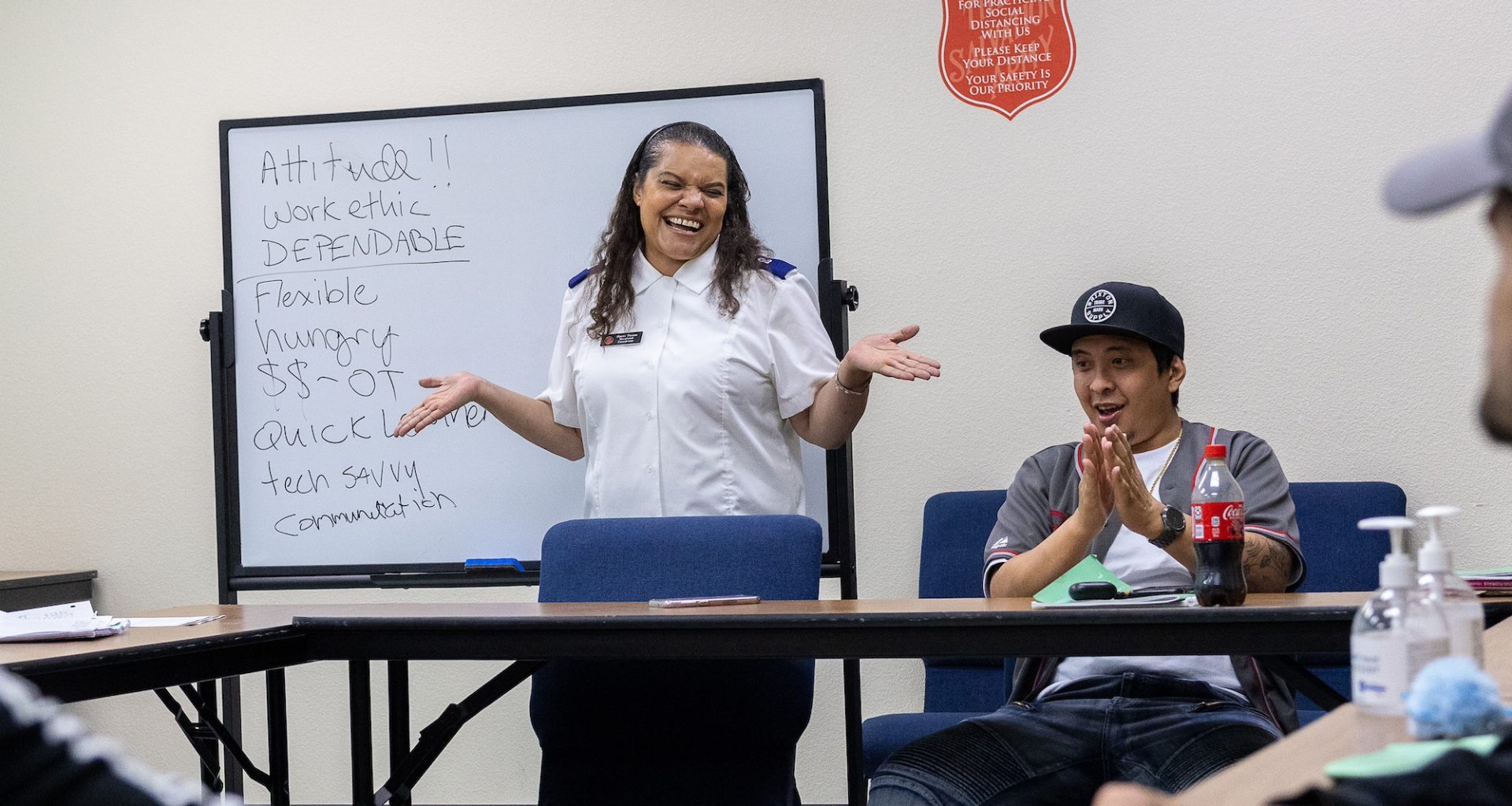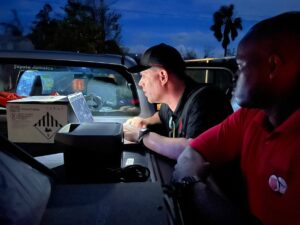“With hard work and perseverance anybody can change their circumstances,” said Sharira Thomas, vocational coordinator for The Salvation Army in Las Vegas. “Each day is a new day and you can start fresh and find a brand new beginning, just like I did.”
It might be the work, in fact, that helps people find stability after substance abuse, homelessness or incarceration—and that’s why The Salvation Army is investing in workforce development programs across the Western U.S.
“It’s increasingly important for The Salvation Army to help individuals secure gainful employment through skill-set evaluations, educational and job training opportunities and job placement assistance,” said Lt. Colonel Phil Lum, Territorial Secretary for Program for The Salvation Army in the Western U.S. “From construction training in Sacramento to a Certified Nurse’s Assistant program in Alameda, a number of culinary training programs across central California, and vocational assistance in Las Vegas—we want to provide hope for the future and a path to self-sufficiency.”
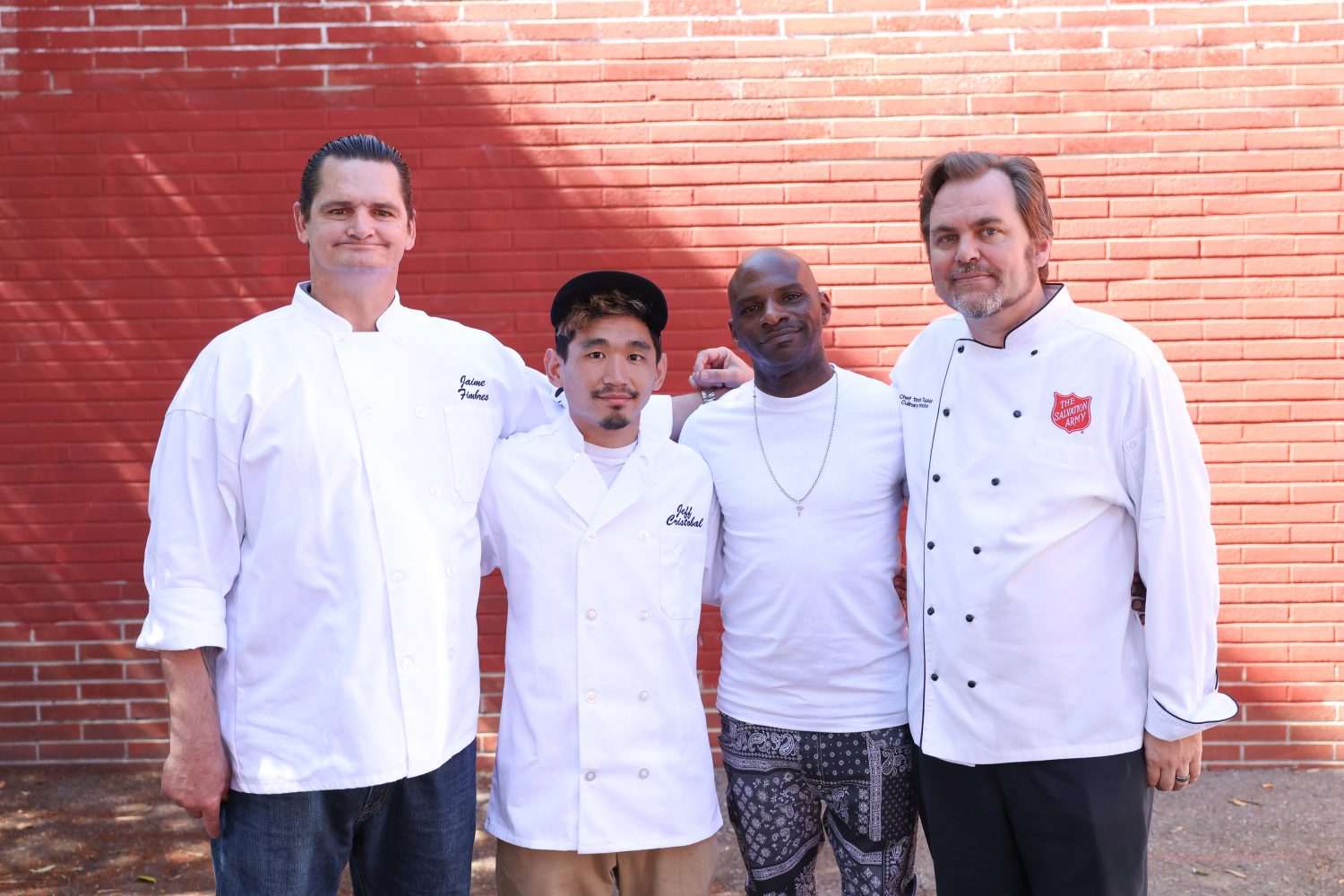
It was part of Salvation Army Founder William Booth’s ethos, too, as he wrote in his 1890 book, “In Darkest England and the Way Out”: “When a cab horse has fallen down, he is helped up, and while he lives, he has food, shelter and work…Can the Cab Horse Charter be gained for human beings? I answer, yes.”
According to the Substance Abuse and Mental Health Services Administration (SAMHSA), employment is linked with lower rates of relapse, improved self-esteem and reduced substance use and criminal activity.
Thomas found sobriety four years ago and now dedicates her efforts to helping others navigate the path to self-sufficiency with support from The Salvation Army.
Participants work through the Las Vegas vocational program to address potential barriers and find employment and independent living.
In the past two years, the vocational program produced 93 graduates from training programs and 131 hires in direct job placement. The program also provided 3,991 job referrals and conducted 4,750 interview sessions.
Thomas stressed the importance of the “Planning for Success” course, which equips participants with tools to “elevate their employability,” from career assessments to job counseling, pursuing further education and certifications.
“When you haven’t worked for a while because you’ve been in your addiction, it can become very discouraging,” Thomas said, emphasizing the crucial role of support during this transitional phase.
Participant Candice Huger said she has felt that support.
“I don’t know if I would be able to do this on my own,” Huger said. “I thought I would either end up dead or in prison.”
After experiencing domestic violence, struggling with substance abuse and facing criminal charges, Huger said she didn’t expect to survive let alone be in a place where she can help others.
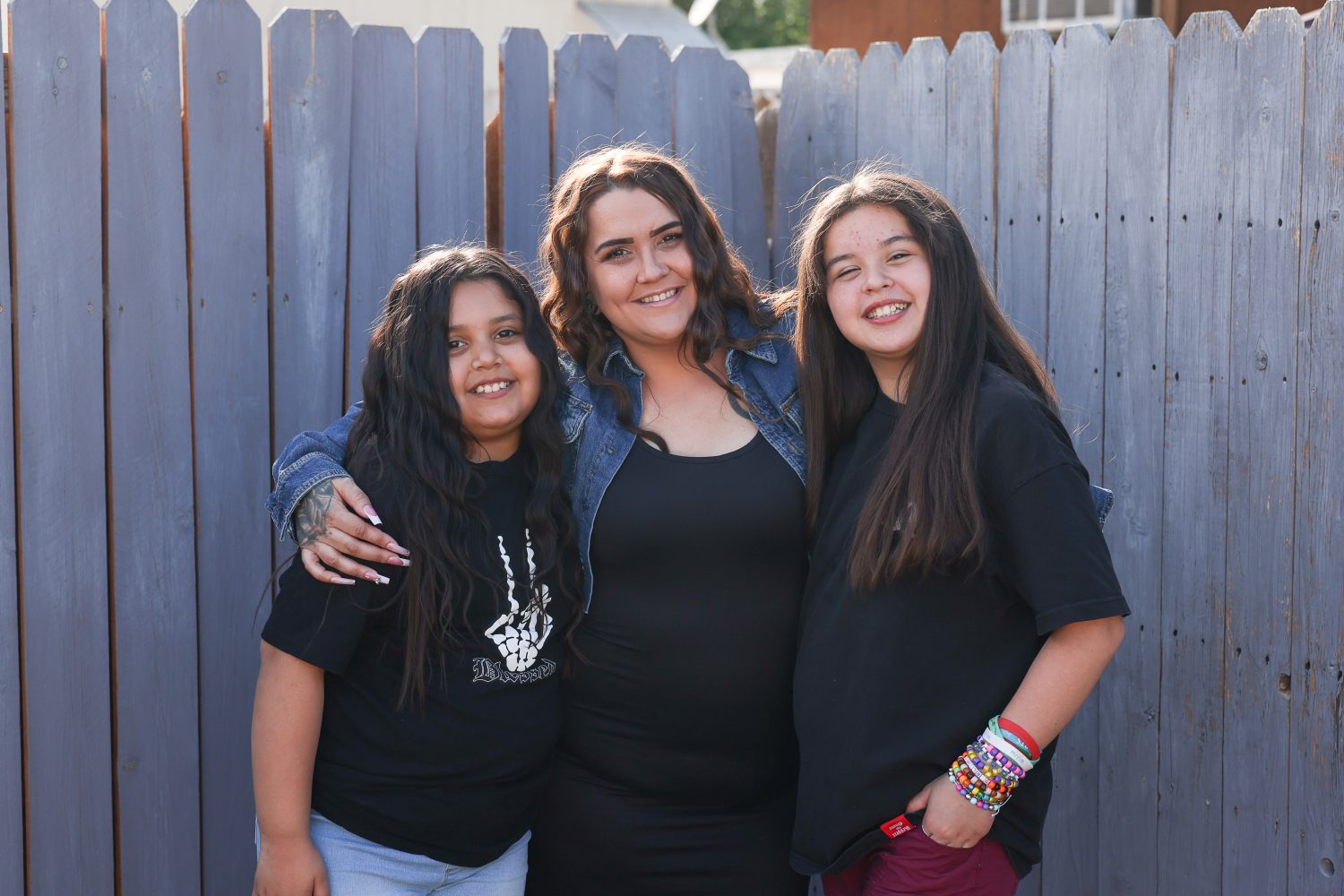
“The Salvation Army saved my life and gave me another chance and a new outlook,” she said, noting she also went through the Las Vegas Adult Rehabilitation Center (ARC), one of The Salvation Army’s residential programs that provide spiritual, emotional and social assistance to individuals who are experiencing a variety of social, emotional and spiritual challenges, including issues relating to substance abuse.
“For me, there was no turning back,” she said. “It’s opened my eyes a lot.”
Through the Planning for Success course, Huger said she’s benefited from hearing others’ experiences and built confidence in her communication skills through mock interview workshops.
As she works to complete her peer support specialist schooling, Huger is eagerly anticipating the future.
“There’s all kinds of opportunities,” Huger said. “I’m just putting one foot in front of the other to keep going forward to get there.”
Across state lines, The Salvation Army in San Francisco similarly emphasizes workforce development as part of The Way Out initiative. The Culinary Training Academy (CTA) provides 10-weeks of culinary training, equipping participants with the expertise needed to thrive in the food industry.
And beyond its practical education, Chef Timothy Tucker, Culinary Arts Program Director, said the program imparts confidence and resilience in its participants, empowering them to overcome past challenges.
“Our ultimate goal is to help people find work and we do that by trying to meet them where they are,” he said.
“Chef has always been supportive of my goals and my ambitions,” said Jermaine Simpson, a graduate of the academy. “Cooking has been a passion of mine ever since I was little and I’ve always wanted the opportunity to go to school for it, but then addiction happened.”
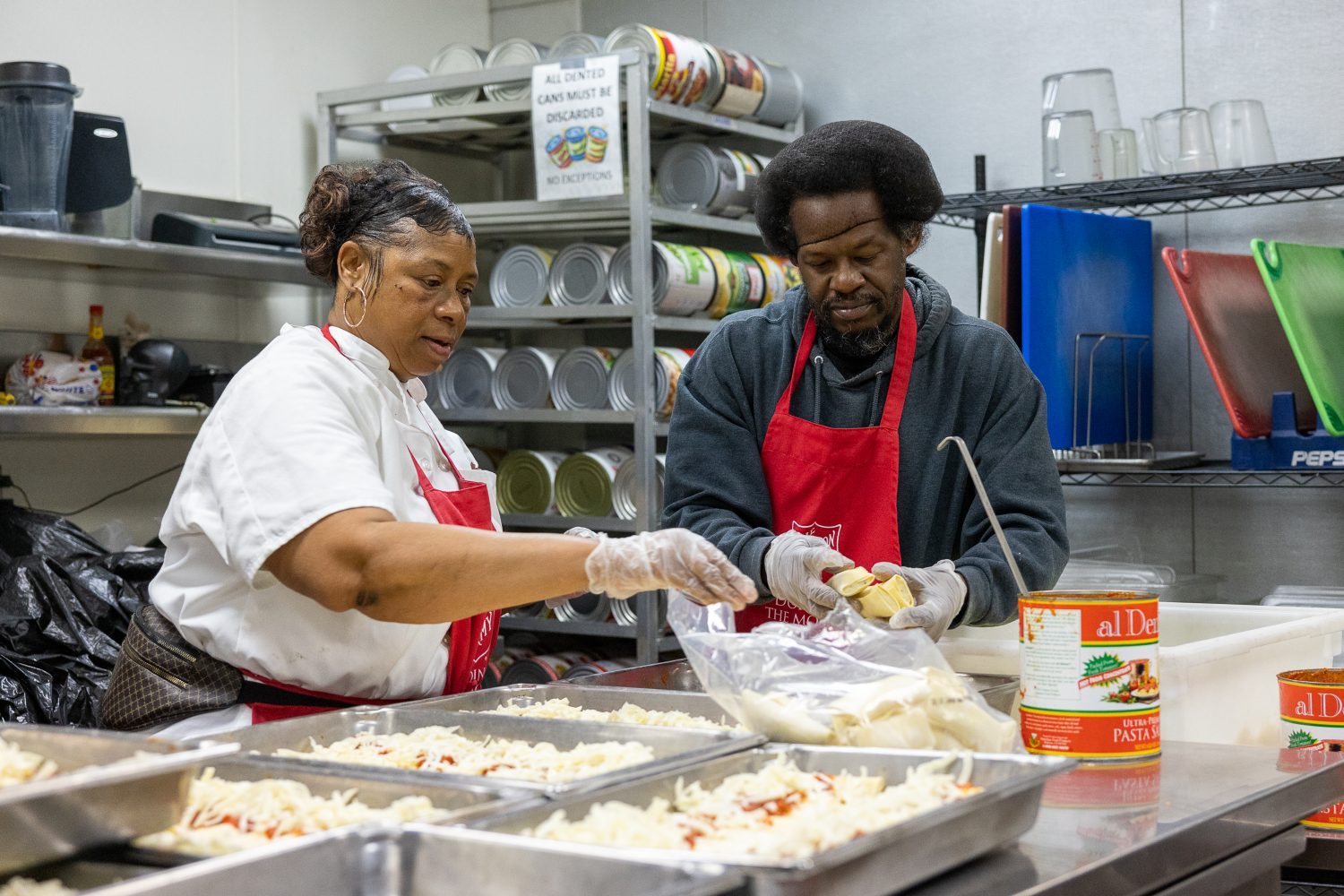
Simpson, like Huger and so many others, found sobriety with the help of the ARC program. Following his graduation, Simpson went on to join the first session of the CTA in San Francisco.
From there, he interned at Osito, a Michelin-starred restaurant, before finding a job as a home care professional with Homebridge.
Now, as one of the academy’s 58 graduates since 2022, Simpson uses the culinary skills he learned to prepare meals and help people in need.
“Most of the clients are limited in the foods that they have, but that’s how I grew up, not having that much food but making a whole meal out of it, so I’m really good at doing that,” he said, noting he would love to start his own business one day.
And that gets at what Tucker says is unique about workforce development programs—it’s more than just learning a skill.
“When you come through a program like ours, we’re going to help you develop a lot of different things,” Tucker added. “We’re trying to heal with wrap-around services, from housing, to life skills to financial literacy, so even though it’s a culinary program, we’re wrapping all these services around learning how to cook.”
Do Good:
- See how The Salvation Army supports rehabilitation.
- You’ve probably seen the red kettles and thrift stores, and while we’re rightfully well known for both…The Salvation Army is so much more than red kettles and thrift stores. So who are we? What do we do? Where? Right this way for Salvation Army 101.








